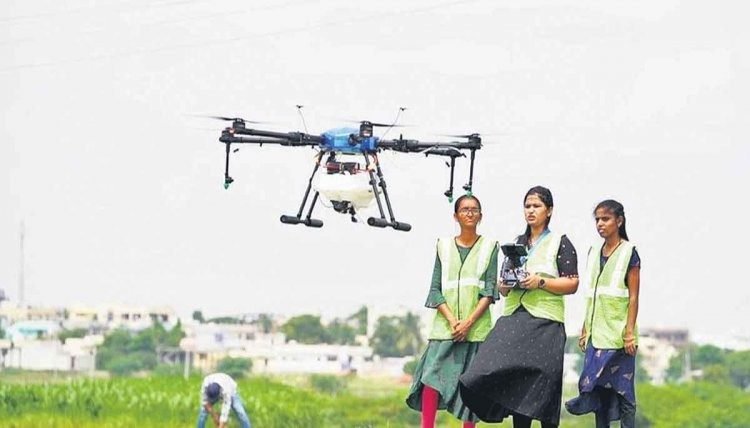Tuesday, 27 January 2026

In a significant stride toward modernising India’s agricultural governance, the Ministry of Agriculture and Farmers’ Welfare rolled out Direct Benefit Transfer (DBT) Platform 2.0 and presented the enhanced NaMo Drone Didi Portal at a national workshop held in New Delhi in June 2025. The initiative marks a major step forward in digitising subsidy disbursement and mainstreaming drone-led precision farming, particularly through women-led Self-Help Groups (SHGs).
The workshop was inaugurated by Dr. Devesh Chaturvedi, Secretary, Department of Agriculture & Farmers’ Welfare (DA&FW), who also released crop-specific Standard Operating Procedures (SOPs) for drone-based application of fertilizers and pesticides. These SOPs are designed to ensure safe, uniform, and efficient drone operations across Indian farmlands—standardising dosage, flight parameters, and safety guidelines for precision input delivery.
The upgraded DBT Platform 2.0 aims to eliminate subsidy delays and reduce manual processing errors through automation, real-time tracking, and tighter integration with Aadhaar-based verification systems. With enhanced analytics, better grievance redressal mechanisms, and a farmer-friendly interface, the platform is set to transform how input subsidies—fertilizer, seed, equipment—are distributed to millions of small and marginal farmers.
In parallel, the NaMo Drone Didi Yojana, one of the Centre’s flagship rural empowerment schemes, has moved into its next phase. It trains women from SHGs to operate agricultural drones for input spraying. The initiative not only aims to fill the skill gap in drone usage but also promotes women’s participation in mechanised agriculture, creating new livelihood avenues at the grassroots.
The newly launched Drone Didi Portal was showcased to state officials. It features a real-time drone operation tracker, modules for pilot training and certification, and a central dashboard for monitoring drone deployment, service records, and SHG performance. By digitising every step—from training to spraying operations—the platform introduces accountability and transparency into drone-based agri services.
Live demonstrations of both platforms provided state government representatives with hands-on experience. States shared field-level insights and suggestions for technical refinement, which the Ministry confirmed would be incorporated to optimise platform usability and implementation efficiency.
The integrated use of drones, combined with real-time DBT monitoring, is expected to streamline service delivery, reduce input misuse, and ensure targeted subsidy reach. By digitally connecting frontline users—women drone pilots, farmers, and government officials—the platforms lay the foundation for an inclusive, tech-enabled agricultural ecosystem.
The reforms also align with broader national goals to digitise rural development, encourage climate-smart farming, and enable precision agriculture as a tool for productivity enhancement. As India ramps up its focus on agricultural mechanisation and data-driven governance, initiatives like DBT 2.0 and the NaMo Drone Didi Portal are likely to play a pivotal role in shaping the future of smallholder farming.